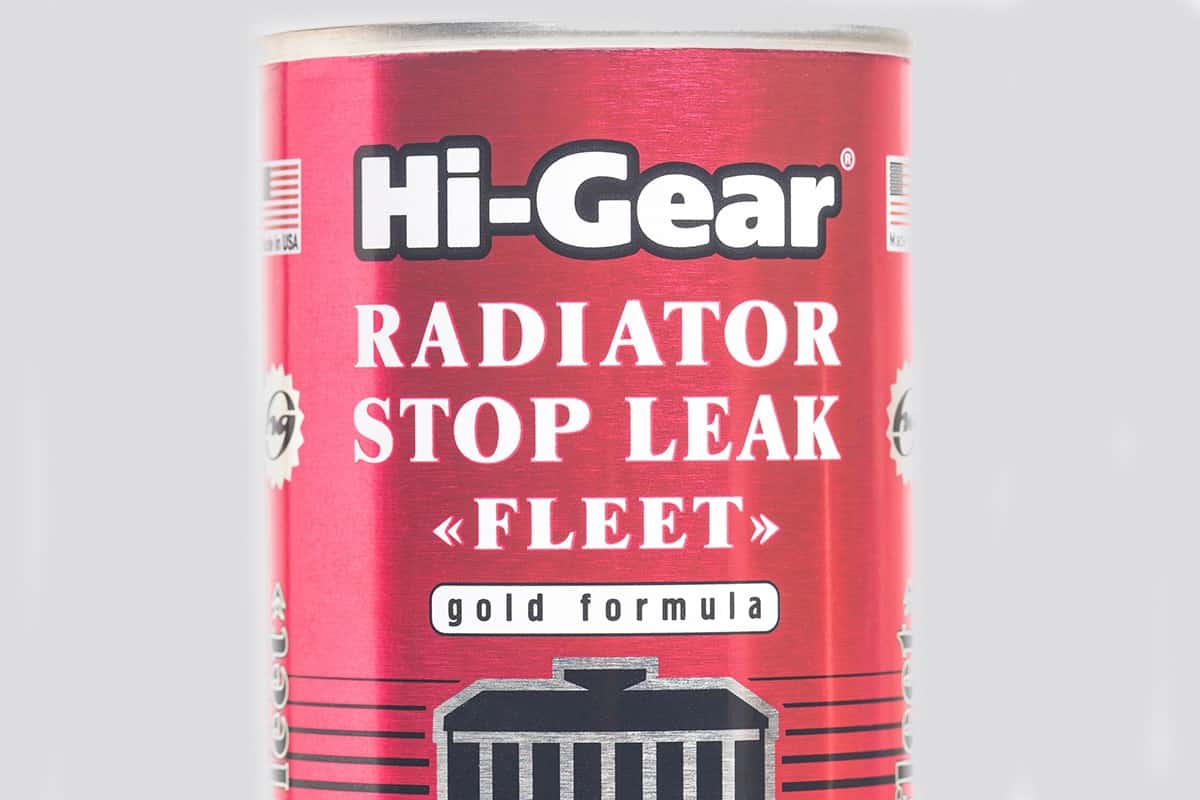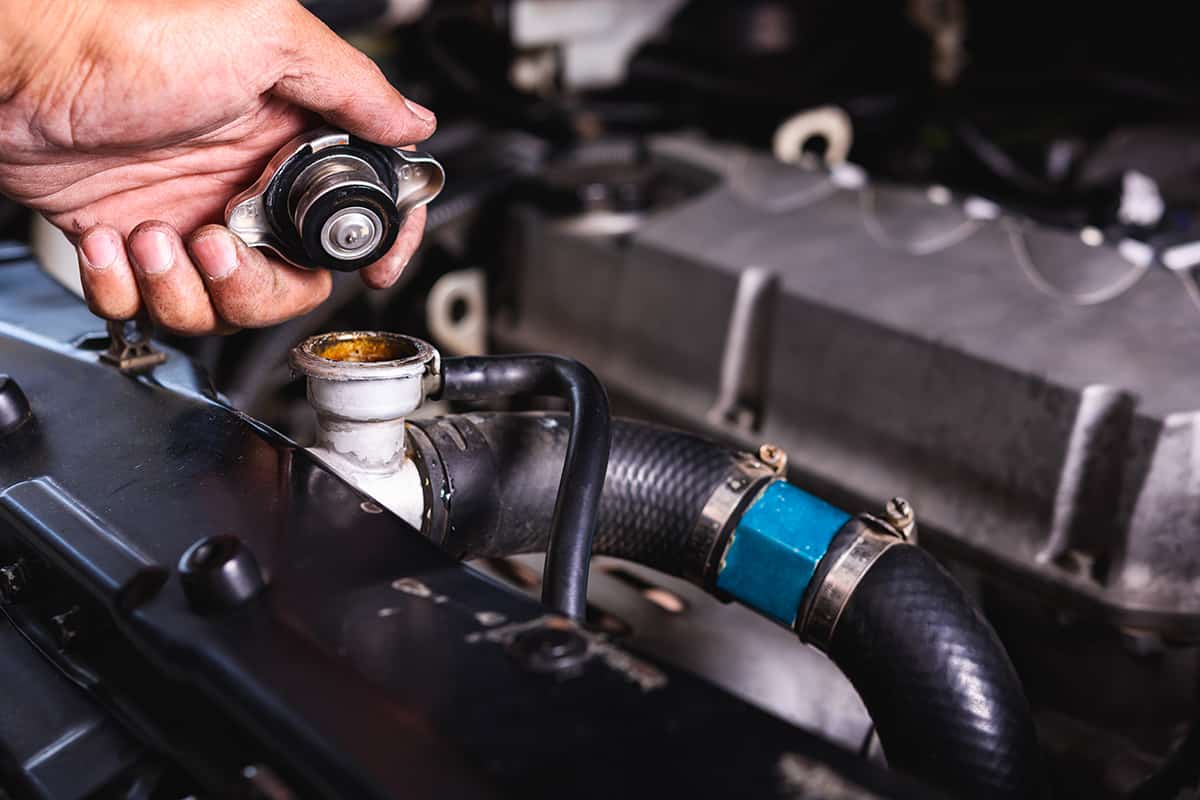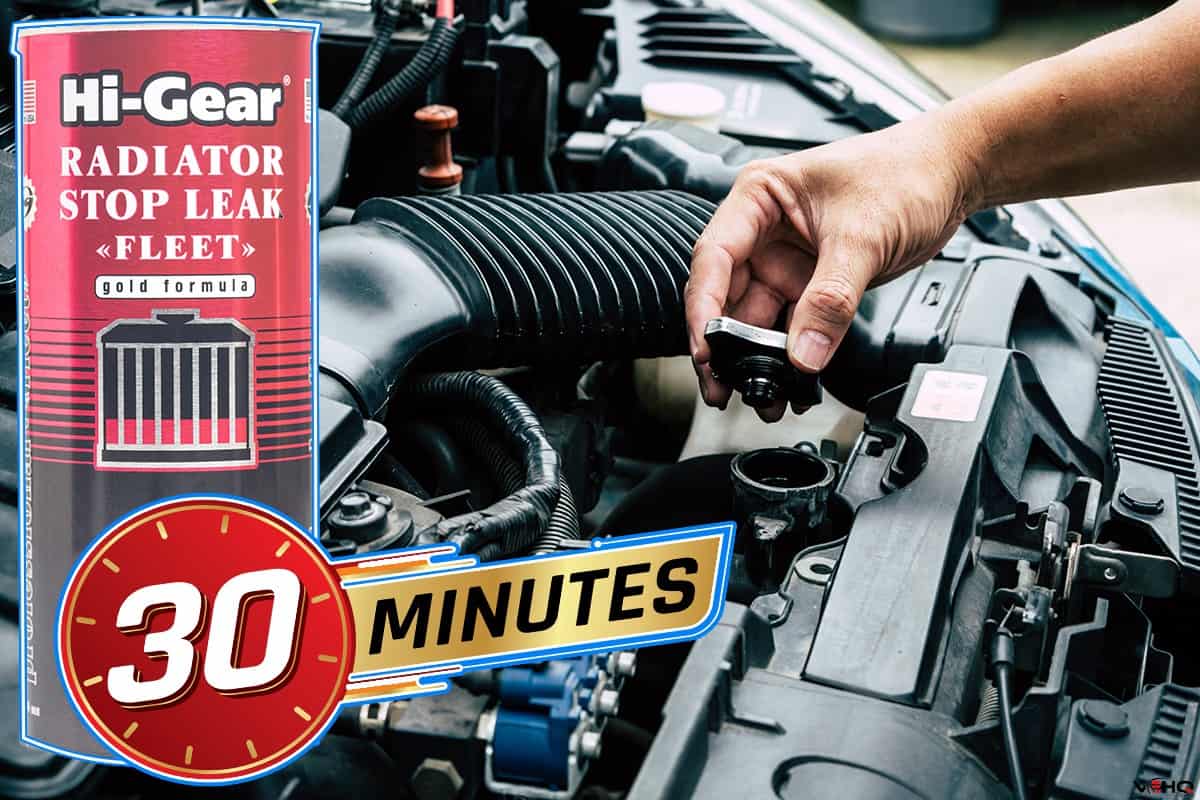It's never a good sign when you notice a coolant puddle underneath your car. If you don't address it right away, it might lead to serious damage. Fortunately, you should be able to repair the leak with a stop leak product, but you should know the advantages and disadvantages of using stop leak. We have researched the topic so you can weigh your options.
Pros of using a radiator stop leak:
- Prevents breakdowns
- Extends the life of your car
- Improves car performance
- Protects seals
- Saves money
Cons of using a radiator stop leak:
- Clogging
- Overheating
- Not a permanent solution
We'll go through the benefits and drawbacks of radiator stop leak in more detail so you'll be aware of what it does. We will also tackle the different types of radiator stop leaks, how long stop leak lasts in a radiator, and how long it takes for the product to work.
What Are The Pros Of Using Radiator Stop Leak?

You prevent damage to your car and keep it operating at its best by using radiator stop leak. These are the advantages of using stop leak.
1. Prevents Breakdowns
The transmission, radiator, and engine can all be seriously harmed while driving with a leak in the radiator, which can quickly cause your car to break down.
Your car will stop running if there is a significant loss of radiator fluid, leaving you stranded. Applying coolant is important because the radiator uses heat to cool the engine.
The engine will become overheated due to high friction if the radiator doesn't have coolant to cool down the engine. The likelihood of an engine overheating increases as the engine temperature rises.
The radiator functions to keep this from happening. A breakdown will probably occur if you do not use radiator stop leak
2. Extends The Life Of Your Car
More leaks occur in older cars. There comes a time when spending additional money on a full radiator replacement is simply not worth it. Radiator stop leak can extend your car's life and keep it running efficiently.
3. Improves Car Performance
Your car can run at its peak for a long time if you make sure the radiator stop leak is receiving the proper amount of fluid consistently.
Your car's power and other vital components, such as the engine and transmission, will eventually become damaged due to the leak in your radiator. To ensure the radiator's stop leak is functioning properly, check to see if the reservoir is dripping.
4. Protects Seals
Oil leaks are unavoidable if your car's or radiator's seals have broken, hardened, become contaminated, or dried out.
To ensure that the radiator stop leak prevents further radiator leaks or performance concerns, oil leak additives renew and lubricate the primary seals and gaskets to restore their original viscosity and flexibility.
5. Saves Money

You may end up spending less money over time by using radiator stop leak to prevent a radiator fluid leak. Complete replacements and repairs can be necessary if a leak is discovered before it worsens and causes significant damage.
For instance, let's say you don't utilize a radiator stop leak. Then, instead of paying for radiator stop leak fluid, you might have to pay for a full radiator replacement, gearbox replacement, or engine replacement, all of which are more expensive options.
What Are The Cons Of Using Radiator Stop Leak?
A radiator stop leak product has certain downsides despite its many uses. Several drawbacks of a radiator stop leak are listed below:
1. Clogging
A sealant, which is in the coolant's liquid form, is safe. But as soon as it comes into contact with air—typically through a leak—it solidifies and plugs the leak. Once the substance has formed, it cannot be removed by water or dissolved in anything.
It has a clay-like pudding form that can be removed by hand by removing the cylinder heads.
The clogged heater matrix can be moved with physical force and a water hose, but if any obstructive components are left in the system, they will cause further clogging.
2. Overheating

Old, unsealed engine cooling systems often have air trapped inside, which causes the sealant to solidify in the engine.
The heater matrix, which has relatively narrow channels, typically clogs up first, followed by the cooling radiator and, ultimately, the engine cooling galleries.
This second situation is extremely risky since the formed sealant clumps prevent various engine nooks and crannies from being cooled by the coolant, causing them to overheat and distort.
3. Not A Permanent Solution
Leaks in your car can't be fixed permanently using radiator stop leak. The product should only be used as a last resort if you cannot identify or resolve the issue causing your radiator fluid to leak.
If the leak is not addressed, it could cause serious damage in the long run. We're only addressing minor, recurring leaks here, and there is only one proper technique to take care of them.
Serious leaks cannot be fixed with sealant, so there is no use trying. You should immediately replace any defective parts.
Different Types Of Radiator Stop Leak
When you are aware that you need a radiator stop leak, you should consider the type of formula you want to use. Make sure you choose a product that makes sense for you and your car.
Liquids
The most typical radiator sealants are liquid fluids. You just need to pour in the radiator fluid. The mixture contains various chemicals and additives.
Stop sealant that is liquid has a lower viscosity. As a result, there is less friction, and it travels through the radiator fluid more freely. The sealant is often made up of thickeners that seal leaks and prevent rust while minimizing dirt and grime buildup.
Click here to see this liquid radiator stop leak on Amazon.
Powder
There are several formulas and volumes of powder stop-leak products available. However, they all perform tasks that are essentially the same. You put the powder in the cooling system and then let it work.
The simplest, clearest choice is this one. It is less efficient than other options, though, because you need a lot of powder to mix it up to the point where it clogs your radiator.
Tablet
This kind of stop leak is not very common. The most practical method, which saves time and money, is the tablet form.
There are two ways to apply this type of stop leak. The tablet should be placed in your radiator and left to work as the initial step.
You might also dissolve the tablets in water and pour the resulting mixture into your radiator. The dissolved particles will heat up inside the radiator and fill any cracks.
Click here to see these tablets on Amazon.
How Long Does Stop Leak Last In A Radiator?

The type and severity of the leak determine the product's useful life.
If your radiator leak is minor to moderate, you can use a stop leak product to prevent it from getting worse while driving. However, if the leak worsens or becomes more severe, your engine may have corrosion problems.
A stop leak additive typically lasts 10,000 miles, but if it's applied early and as a temporary fix for a leaking radiator, it can last up to 50,000 miles.
How Quickly Does Stop Leak Work?

In most cases, a radiator stop leak product can stop a leak immediately. In rare instances, it may take up to 30 minutes to work effectively. If the leak doesn't stop in 30 minutes, you should try another product on your car.
As we mentioned before, the fix won't be permanent because you'll probably need to replace the radiator.
So be prepared to get a new one if your radiator is leaking significantly. This means that the cooling system cannot maintain pressure and needs to be repaired immediately.
Conclusion
A radiator stop leak product can be a useful temporary fix for radiator leaks.
Even if your car is running smoothly, it just takes a significant rise in temperature or a loose rock hitting the radiator while you're driving to cause a troublesome coolant leak.
Now that you know the advantages and disadvantages of using a radiator stop leak product, you'll be aware of what to do when this happens. You should remember that using a stop leak product is a temporary repair and a last resort.
If you found this post helpful, check out these related articles:
How To Use Blue Devil Head Gasket Sealer [With Or Without Radiator Cap]?
How To Know If You Have A Clogged Radiator Or Blown Head Gasket?


